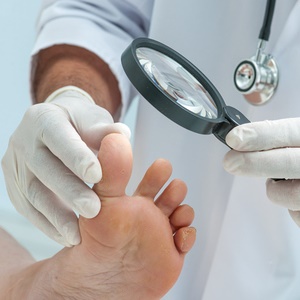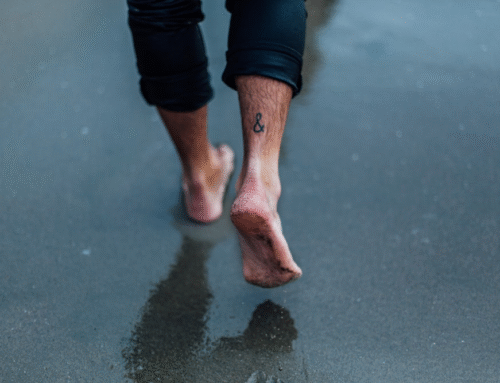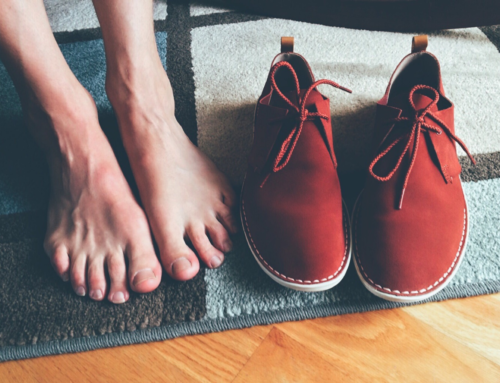Is toenail fungus contagious? There is little research available on how toenail fungus is spread. Fungal spores are usually invisible to the naked eye and are therefore hard to diagnose without medical intervention. The short answer is yes. Toenail fungus affects the nails and the skin under them. Toenail fungus gets worse over time if left untreated. As the fungus grows, the condition and appearance of the nails become more severe. While this growth is evident in the progression of the fungus, the fungus can also grow in another way. Nail fungus can easily spread between people who are in close proximity to one another. Typically happens to family members and sports teams. This is very common among people who share shoes. Because of this trait, nail fungus is considered to be a contagious infection. If you have a toenail fungus and are worried about spreading it to those around you, you may be wondering how contagious the fungus actually is.
Contagious Nail Fungus
Toenail fungus easily spreads between people who spend a lot of time together because the fungus uses surfaces to contaminate other individuals. The fungus likes to attach itself to someone who is infected onto surfaces like the floor or nail clippers. Because it is contagious, when someone who isn’t infected touches the surface where the fungus resides, it has the opportunity to infect someone new. The fungus then has a new host that it can use to grow, reproduce, and continue to be contagious!
The contagious fungus usually spreads to a few places. Public spaces like locker rooms commonly have fungus on the floor since so many people walk around them barefoot. Locker room floors also benefit from fungus because they are damp and sweaty. However, fungal spread often occurs in your home! By sharing shoes, socks, or nail clippers with the people you live with, you risk giving them fungus. The easiest way to avoid contagious fungal spread is to be aware of when and where you are barefoot, and avoid sharing personal items like nail clippers with anybody else.

The Spread of Toenail Fungus
One study estimates that approximately 35 million people have some type of toenail fungus or onychomycosis. Onychomycosis is chronic and persistent; therefore, it is extremely hard to treat. Toenail fungus’s close cousin is the Athlete’s foot. As a result, it is caused by the same spores. Although Athlete’s foot affects the skin, onychomycosis infects the nail bed.
Toenail fungus spreads from person to person in many ways. The most common way is in places where walking barefoot is acceptable. For example, locker rooms, public saunas, and public pools are very common places where the fungus can spread. Fungal spores are contagious because they are capable of surviving on surfaces like floors without needing a host. As new people walk over the surfaces, the fungus spores can latch onto their nails. Then the fungus uses them as a new host.
Another way to easily spread toenail fungus is by sharing shoes. Some people think it’s a myth, but sharing shoes cannot only lead to nail fungus infection, but you may also get athlete’s foot. An athlete’s foot is a common fungal infection of the skin of the foot, which can then develop into a toenail fungus infection if left untreated. If at all possible, our nail doctors in Miami, FL recommend never sharing or trading shoes with someone else. This does not matter, no matter how well you know the person.
Can you get nail fungus at a nail salon?

Because nail fungus is so contagious, it is also commonly transmitted from person to person at nail salons. Nail technicians use tools that come into direct contact with toenails and can harbor fungus. When the nail tools aren’t properly sanitized between customers, the fungus can be transferred to other people. To avoid this, make sure your nail salon properly sanitizes its tools before using them on you. Another way to avoid getting nail fungus from a nail salon is by bringing your own tools that the nail techs can use.
Untreated Toenail Fungus
If left untreated, it is highly likely the infection will spread to other nails and other people. Dr. Mahmoud Ghannoum of the Center for Medical Mycology at University Hospitals Case Medical Center shows that toenail fungus, as well as athlete’s foot, can be spread to other members of the household by the infected person.
In their study, they found that out of their sample, 42% of those with toenail fungus spread it to at least two other people in their household. On top of this, they found that within that group, approximately 80% of the people who developed toenail fungus developed the most common strain. This confirms the risk one can put their loved ones in if they have untreated toenail fungus.
Toenail Fungus Prevention
Prevention of nail fungus is important. One way of getting a nail fungus is skin-to-skin contact with people who already have it or other fungal infections on their skin, such as Athlete’s foot. Another way of getting fungi in your nails is through objects. You can get nail fungus by walking barefoot in a warm and moist area, such as a public pool, or by sharing an infected nail clipper or shoes.
In addition to those conditions above, simply age can be a factor too – older adults are more prone to get fungal nail infections. If you have these conditions above, be extra careful with the fungal nail infection. If you notice any changes in your nails, ask your doctor immediately.
Laser Treatment for Nail Fungus
As you can see, tips for healthy feet without nail fungus can be easy to find. Furthermore, if you have caught nail fungus, it can be easily treated using the FDA-approved PinPointe laser. It typically only takes one treatment. Other treatments, like topical solutions and oral medication, are not as effective. Topical solutions have a very low cure rate. This is because the solution does not penetrate all the way through the nail bed. This is because it can lead to liver toxicity. You would need to have consistent blood tests throughout the course of taking the medication.
Our nail doctor in Miami Beach, FL, recommends this treatment for toenail fungus. The PinPointe Laser treatment has the highest cure rate in the market. It has no side effects and no recovery period. As a result, you can go about your daily activities right after the treatment. Also, there’s no pain. If you have any signs of nail fungus, call us at (800) 672-0625 at our Miami, FL, location. Visit our website for more information on our doctors at one of our over 150 locations.





